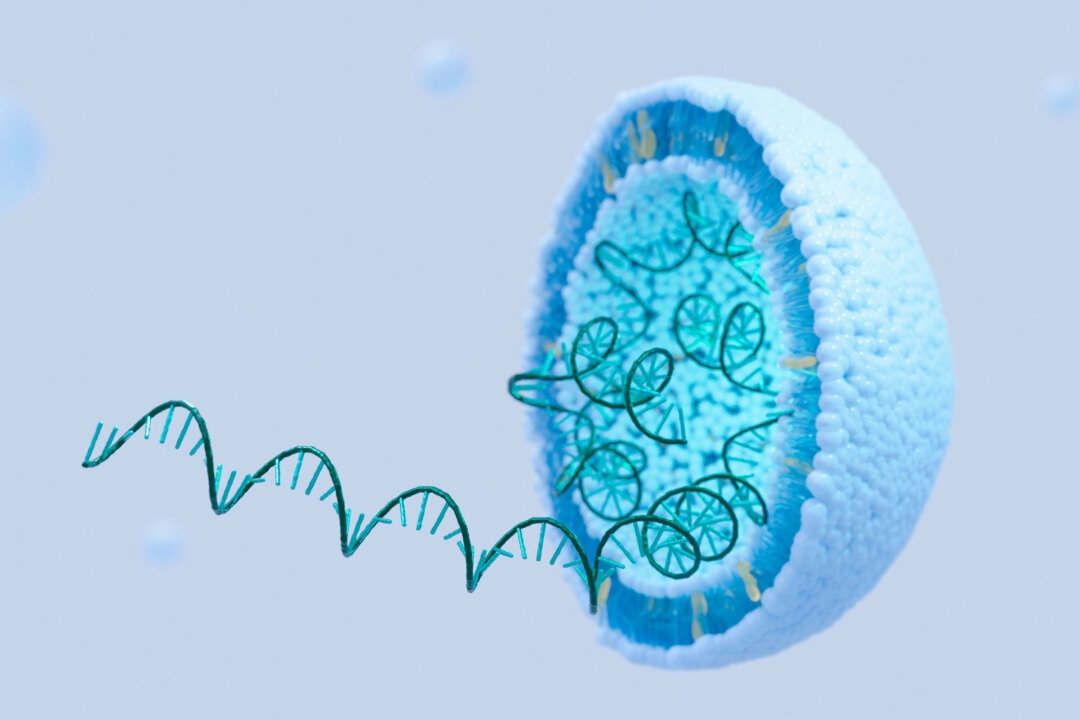from The Epoch Times:
 A new report demonstrates for the first time the ability of COVID-19 vaccines to penetrate the fetal-placental barrier and reach the intrauterine environment.
A new report demonstrates for the first time the ability of COVID-19 vaccines to penetrate the fetal-placental barrier and reach the intrauterine environment.
A new report suggests vaccine mRNA does not remain at the injection site following vaccination but can “spread systemically” to the placenta and umbilical cord blood of infants whose mothers are vaccinated during pregnancy.
TRUTH LIVES on at https://sgtreport.tv/
Researchers vaccinated two pregnant women with mRNA vaccines shortly before delivery to determine whether the mRNA in COVID-19 vaccines reached the placenta or fetus following maternal vaccination.
Researchers Find Vaccine mRNA in Samples
The first patient, “Patient 1,” was a 34-year-old woman at 38 weeks and four days gestation who received two Pfizer vaccine doses and two booster doses—one Pfizer and one Moderna. The Moderna booster dose was administered two days before the delivery of a healthy baby by cesarean section.
The second patient, “Patient 2,” was a 33-year-old woman at 40 weeks gestation. She received two Pfizer vaccine doses. The last dose was given 10 days before vaginal delivery of a healthy baby.
Researchers also detected a “notably high signal” of vaccine mRNA in the placental decidua tissue of Patient 1, who received four vaccine doses. The decidua is the specialized endometrium layer that forms the base of the placental bed.
Spike protein expression was also detected—but only in the placenta of Patient 2. However, vaccine mRNA was detected in Patient 1’s cord and maternal blood samples, which were unavailable for the second patient.
The authors said the expression of spike protein in the placenta of the second patient but not in the first suggests that more than two days are necessary following vaccination for the mRNA to reach the placenta and be translated into the spike protein, which is then expressed in placental tissue.
Finally, researchers found the integrity of vaccine mRNA varied across different samples—the vaccine’s ability to activate an immune response relies upon fully intact mRNA. According to the findings, vaccine mRNA was largely fragmented in the cord blood and less fragmented in the placenta. In the placentas, 23 percent and 42 percent of the initial integrity was retained in Patients 1 and 2, respectively. In maternal blood from Patient 1, the vaccine’s mRNA had a high level of integrity at 85 percent. Integrity decreased to 13 percent in cord blood, suggesting limited bioactivity.
COVID-19 mRNA vaccines use lipid nanoparticles (LNPs) to deliver mRNA. “The findings suggest that lipid nanoparticles (LNPs) are capable of reaching the placenta and releasing mRNA within placental cells, where it is then translated into the spike (S) protein. However, by the time the mRNA reaches the fetus, it is no longer encapsulated by the LNPs, leading to its degradation (only 13% of the mRNA is intact in fetal circulation),” Dr. Hanna told The Epoch Times.
Dr. Hanna noted that the authors of the recently published paper did not evaluate the implications of transient spike protein expression in the placenta or the effects of degraded mRNA on the fetus.



